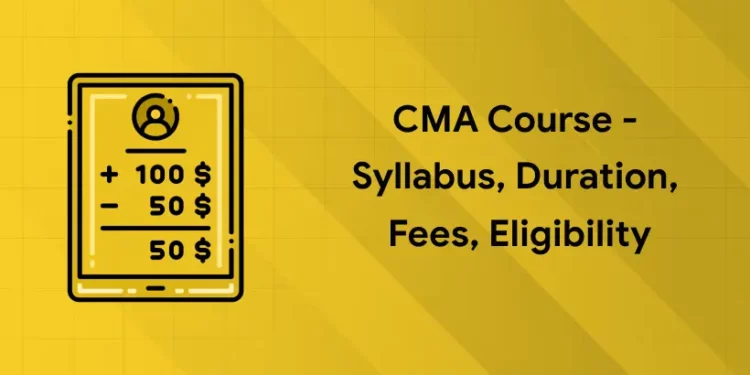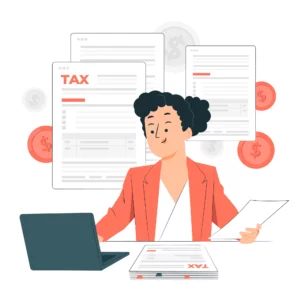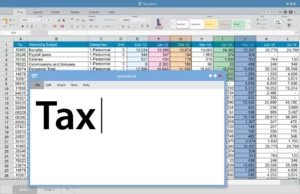Table of Contents
Key Takeaways:
- The CMA certification is a highly respected credential in cost and management accounting, offering expertise in financial planning, strategic management, and business analytics.
- The course is structured into three levels: Foundation, Intermediate, and Final, with a comprehensive syllabus updated for 2026 to include emerging topics like data analytics, digital transformation, sustainability (ESG), and advanced risk management.
- CMA candidates develop skills in budgeting, cost control, forecasting, investment decisions, and ethical business practices, aligning with modern business demands.
- The course offers flexible eligibility options for 10+2 students, graduates, and working professionals, with practical training integration enhancing industry readiness.
- Career prospects are robust, with CMAs earning higher salaries and securing roles in diverse industries such as banking, manufacturing, IT, healthcare, and consulting, with global recognition expanding international opportunities.
Introduction: Why Choose the CMA Course in 2026?
The Certified Management Accountant (CMA) qualification regulated by ICMAI remains one of the most respected and rewarding credentials in India’s commerce and finance sector. In 2026, with businesses increasingly relying on cost management, strategic financial planning, and analytics, the demand for CMAs has surged both domestically and internationally.
-
CMAs command higher pay—on average 20-30% more than non-certified peers.
-
The course prepares candidates to be expert cost accountants, financial analysts, CFO aspirants, and strategic business consultants.
-
Achieving CMA certification opens doors across manufacturing, IT, healthcare, banking, and consulting industries.
-
The curriculum balances theory with practical training, keeping students industry-ready.
-
The course is flexible and accessible via online registration and multiple exam attempts.
Updated Eligibility Criteria for CMA 2026
| Course Level | Eligibility Criteria |
|---|---|
| Foundation | Passed 10+2 examination from a recognized board; No age limit. |
| Intermediate | Completed Foundation OR Graduation/Postgraduation (all streams except Fine Arts) – direct entry. |
| Final | Passed Intermediate and completed 15 months of practical training (can overlap with Final). |
-
Candidates awaiting results can also apply.
-
Graduates can skip Foundation and apply directly to Intermediate.
-
Practical training can be done during or after the Intermediate/Final exams.
Enroll in Entri’s USA CMA course now!
Start Your CMA Journey Today
Kickstart your CMA preparation with expert mentorship, structured learning, and a clear roadmap from basics to exam readiness.
Know MoreCMA Course Duration and Attempts
-
The overall course duration is minimum 3 years, typically around 2.5 to 4 years based on preparation pace.
-
Foundation: Minimum 8 months preparation.
-
Intermediate: Minimum 10 months.
-
Final: Minimum 18 months.
-
Candidates can attempt exams as many times as needed within a 7-year registration window.
-
Practical training of 15 months is mandatory for certification.
Course Syllabus & Subjects for 2026
The CMA course syllabus designed by the Institute of Cost Accountants of India (ICMAI) is structured to provide comprehensive knowledge and skills in cost and management accounting, finance, taxation, and strategic decision-making. The syllabus is divided into three progressive stages: Foundation, Intermediate, and Final, each building upon the previous to prepare candidates for real-world business challenges.
Foundation Course (4 Papers)
The Foundation stage lays the groundwork by introducing fundamental concepts essential for any cost accountant or finance professional.
-
Fundamentals of Economics and Management:
Covers basic economic principles, demand & supply, market structures, business environment, and the fundamentals of management including planning, organizing, staffing, and control functions. -
Fundamentals of Accounting:
Introduces the basics of financial accounting including journal entries, ledger posting, trial balance, final accounts, and fundamentals of bookkeeping relevant to cost accounting. -
Fundamentals of Laws and Ethics:
Overview of business laws such as Contract Act, Sale of Goods Act, and Introduction to ethics and corporate governance principles. -
Fundamentals of Business Mathematics and Statistics:
Focuses on basic mathematical techniques, algebra, calculus, and statistical tools like averages, correlation, regression, and probability critical for decision-making.
Intermediate Course (8 Papers in 2 Groups)
Building on foundation concepts, the Intermediate stage deepens knowledge with specialized subjects that bridge theory and practical application.
Group 1: Core Financial Accounting & Law |
Group 2: Cost Management and Strategic Planning |
|---|---|
| Financial Accounting: Advanced accounting principles, GST, financial statements, and disclosures. | Operations Management & Strategic Management: Process optimization, quality management, strategic planning frameworks, balanced scorecard. |
| Laws and Ethics: Company law, partnership law, and compliance requirements for businesses. | Cost & Management Accounting and Financial Management: Cost concepts, budgeting, capital budgeting, working capital management. |
| Direct Taxation: Income tax laws, tax computation for individuals and businesses, tax planning. | Indirect Taxation: GST framework, customs duty, excise, and VAT principles. |
| Cost Accounting: Methods of costing, cost control techniques, inventory valuation, cost sheets. | Company Accounts & Audit: Auditing principles, company accounts, internal controls, and audit reports. |
The Final level emphasizes strategic decision-making, compliance, and performance management at an advanced level, preparing candidates for leadership roles.
| Group 3: Advanced Corporate Laws and Financial Reporting | Group 4: Strategic Management and Business Analysis |
|---|---|
| Corporate and Economic Laws: Detailed corporate governance, competition law, economic legislation. | Corporate Financial Reporting: IFRS adoption, consolidated financial statements, and advanced reporting standards. |
| Strategic Financial Management: Capital structure, risk management, portfolio management, and derivatives. | Indirect Tax Laws and Practice: Advanced GST practices, tax audits, and litigation. |
| Strategic Cost Management – Decision Making: Activity-based costing, target costing, life cycle costing, pricing strategies. | Cost and Management Audit: Risk assessment, internal audit procedures, compliance audit, and fraud control. |
| Direct Tax Laws and International Taxation: Corporate tax planning, transfer pricing, double taxation avoidance agreements. | Strategic Performance Management and Business Valuation: KPI analysis, benchmarking, valuation techniques, and business strategy execution. |
-
Candidates must complete 15 months of practical training to integrate theoretical knowledge with real-world accounting and management practices.
-
Training may include internships or jobs in finance departments, accounting firms, manufacturing companies, or consultancy agencies.
-
This hands-on experience is mandatory to qualify for the final certification.
Get a head start by exploring our free materials platform now!
Tips on Preparing the Syllabus:
-
Prioritize understanding concepts over rote learning for long-term retention.
-
Utilize Entri’s updated video lectures and practice tests tailored to the 2026 syllabus.
-
Plan study schedules for each group to ensure all papers are covered systematically.
-
Focus on difficult subjects like taxation and auditing early to allow more revision time.
-
Consistently attempt mock tests and past exam papers to build confidence and time management.
Exam Pattern and Passing Criteria
-
Exams conducted twice yearly (June and December).
-
Mix of objective (MCQs) and subjective questions.
-
Each paper duration: 3 hours.
-
Minimum passing marks: 40% per paper and 50% aggregate in each group.
-
Separate attempt allowed for each group.
-
Online or offline modes as per ICMAI announcements.
Start Your CMA Journey Today
Kickstart your CMA preparation with expert mentorship, structured learning, and a clear roadmap from basics to exam readiness.
Know MoreUpdated CMA Course Fees 2026
| Level | Full Fees (INR) | Installment Option (INR) |
|---|---|---|
| Foundation | 6,000 | N/A |
| Intermediate | 23,100 | ₹12,000 (1st) + ₹11,100 (2nd) |
| Final | 25,000 | ₹15,000 (1st) + ₹10,000 (2nd) |
-
Total for graduates skipping Foundation: approx. ₹48,100.
-
Fees cover registration, tuition, and exams. Additional coaching/material costs may apply.
-
Payments via net banking, UPI, credit/debit cards on ICMAI portal.
How to Register for the CMA Course?
Registering for the CMA course with the Institute of Cost Accountants of India (ICMAI) in 2026 is straightforward and can be done online or offline. Below is a detailed guide to help candidates through the entire registration process for Foundation, Intermediate, and Final levels.
Step 1: Check Eligibility
-
Foundation: Passed Class 12th or equivalent from a recognized board.
-
Intermediate: Passed Foundation or hold a graduate/postgraduate degree (except Fine Arts) for direct entry.
-
Final: Cleared Intermediate and completed or pursuing practical training.
Ensure your documents meet eligibility requirements before starting registration.
Step 2: Visit the Official ICMAI Registration Portal
-
Go to the official ICMAI website: https://icmai.in
-
Navigate to the Students section from the main menu.
-
Click on Online Admission or directly visit Admission Page.
Step 3: Select Course & Create Login Account
-
Choose the course level you wish to register for: Foundation, Intermediate, or Final.
-
Create a new login account by entering a valid email ID and password.
-
Verify your email with the OTP sent for account activation.
Step 4: Fill Registration Form
-
Enter personal details (name, date of birth, gender, nationality).
-
Provide educational qualifications and upload supporting documents:
-
10+2 certificate (for Foundation),
-
Graduation degree certificate (for Intermediate direct entry),
-
Passport-sized photographs (3 copies),
-
Signature in specified format.
-
-
Upload scanned copies of all required documents in the preferred formats (JPG, JPEG, PDF) with size limits typically under 200 KB.
Step 5: Pay Registration Fees
-
Pay the course fee online via net banking, credit/debit card, UPI, or other available payment modes.
-
Fee payment details for 2026:
-
Foundation: Approx. ₹6,000,
-
Intermediate: Approx. ₹23,100 (can pay in two installments),
-
Final: Approx. ₹25,000 (two installments applicable).
-
-
After payment, a confirmation receipt will be generated; save/download it for future reference.
Step 6: Confirm Registration & Download Acknowledgment
-
Once the form and payment are successfully submitted, the system will generate your registration number.
-
Download the acknowledgment receipt and registration confirmation email.
-
Print or save all documents for records and future exam form submissions.
Step 7: Apply for Exams
-
Exam forms for June and December exams open separately after registration.
-
Login to the portal using your registration number.
-
Fill the exam application form before the deadline, pay exam fees, and download admit cards once issued.
-
Keep track of exam schedules from the official ICMAI website.
Also read: How to Prepare for the CMA Exam: The Ultimate Guide
Key Dates to Remember for 2026
| Testing Window | Start Date | End Date | Last Day to Register |
| Window 1 | Jan 1, 2026 | Feb 28, 2026 | Feb 15, 2026 |
| Window 2 | May 1, 2026 | June 30, 2026 | June 15, 2026 |
| Window 3 | Sep 1, 2026 | Oct 31, 2026 | Oct 15, 2026 |
Offline Registration Option
-
Candidates can also register via postal mode by sending the filled application form with documents and fee payment proof to the regional ICMAI chapter office.
-
Postal applications take longer and are less preferred compared to online options.
Tips for a Smooth Registration Process
-
Keep scanned documents ready in appropriate formats and sizes.
-
Double-check all details before submission to avoid rejections.
-
Register well before deadlines to avoid last-minute rush.
-
Save all receipts and communications from ICMAI carefully.
-
Use official ICMAI portals only to avoid fraudulent services.
Career Scope & Salary Outlook for CMA Graduates
-
CMAs work in roles such as Cost Accountant, Financial Analyst, Corporate Controller, CFO Trainee, and Management Consultant.
-
Industries hiring CMAs include Banking, Manufacturing, IT, Healthcare, Consulting, and Startups.
-
Entry-level CMA salaries range from ₹4-6 Lakhs per annum in India; mid-level CMAs earn ₹8-15 Lakhs.
-
Global opportunities include positions in the Middle East, Southeast Asia, and Western countries due to global recognition.
-
CMAs contribute critically to cost control, financial decision-making, risk management, and strategic growth.
Unlock your USA CMA career now with Entri’s comprehensive course!
Comparison: CMA vs CA vs ACCA vs MBA
| Course | Focus | Duration | Cost | Main Advantage |
|---|---|---|---|---|
| CMA | Cost & Management Accounting, Strategic Mgmt | 2.5-4 years | Moderate (~₹50K) | Practical cost control skills, industry-ready |
| CA | Chartered Accountancy (Audit, Taxation) | 4-5 years | Higher (~₹1L) | Strong tax and audit expertise |
| ACCA | International finance & accounting | 2-3 years | Variable | Globally recognized finance certification |
| MBA | General Management & Business Administration | 2 years | High (~₹5L+) | Broad business leadership skills |
Entri’s CMA USA Course: Structured Success for Aspiring Management Accountants
For those aiming to build a global career in management accounting, Entri offers a comprehensive CMA USA course in collaboration with Zivet. The program is designed to meet the highest standards in professional education, balancing theoretical knowledge and practical skills that empower candidates for success in the global finance world.
Course Highlights
The CMA USA course by Entri features 400 hours of flexible online learning, combining live and recorded classes to accommodate a range of schedules. Learners benefit from expert mentorship, live doubt-clearing sessions, and AI-integrated study methods, enhancing the overall experience and comprehension.
- Comprehensive Curriculum: Covers cost management, financial analysis, strategic planning, performance management, risk management, and more, mapped closely to the dual-part CMA exam structure.
- Skill-Building: Students gain hands-on expertise in budgeting, financial forecasting, corporate finance, data analysis (including Excel and ERP tools), leadership, and professional ethics.
- Outcome-Focused: The course prepares graduates for roles such as management accountant, cost accountant, finance controller, treasurer, and CFO.
Also read: Top Indian Companies Hiring CMA USA
Conclusion: Your Pathway to Success with the CMA Course in 2026
The Certified Management Accountant designation remains a golden opportunity for finance professionals seeking specialized expertise in cost management, strategic decision-making, and financial analytics. Updated for 2026, the CMA course offers a streamlined, affordable, and industry-relevant path to career growth with global recognition. By choosing the CMA route, supported by resources like the Entri App, candidates can confidently navigate the exam journey, secure impactful roles, and achieve financial leadership aspirations.
Embark on your CMA journey today to shape tomorrow’s business and finance leadership.
Start Your CMA Journey Today
Kickstart your CMA preparation with expert mentorship, structured learning, and a clear roadmap from basics to exam readiness.
Know MoreFrequently Asked Questions
Can commerce and non-commerce students apply for CMA?
Yes, both are eligible. Graduates of all streams except Fine Arts can directly join Intermediate.
Is practical training mandatory?
Yes, 15 months of practical training is compulsory for certification.
Can I skip Foundation if I am a graduate?
Yes, graduates can directly register for Intermediate.
How many attempts can I take for CMA exams?
Unlimited attempts are allowed within your registration validity (7 years).
What is the average salary of a CMA fresher?
It ranges between ₹4-6 Lakhs per annum, increasing with experience.















